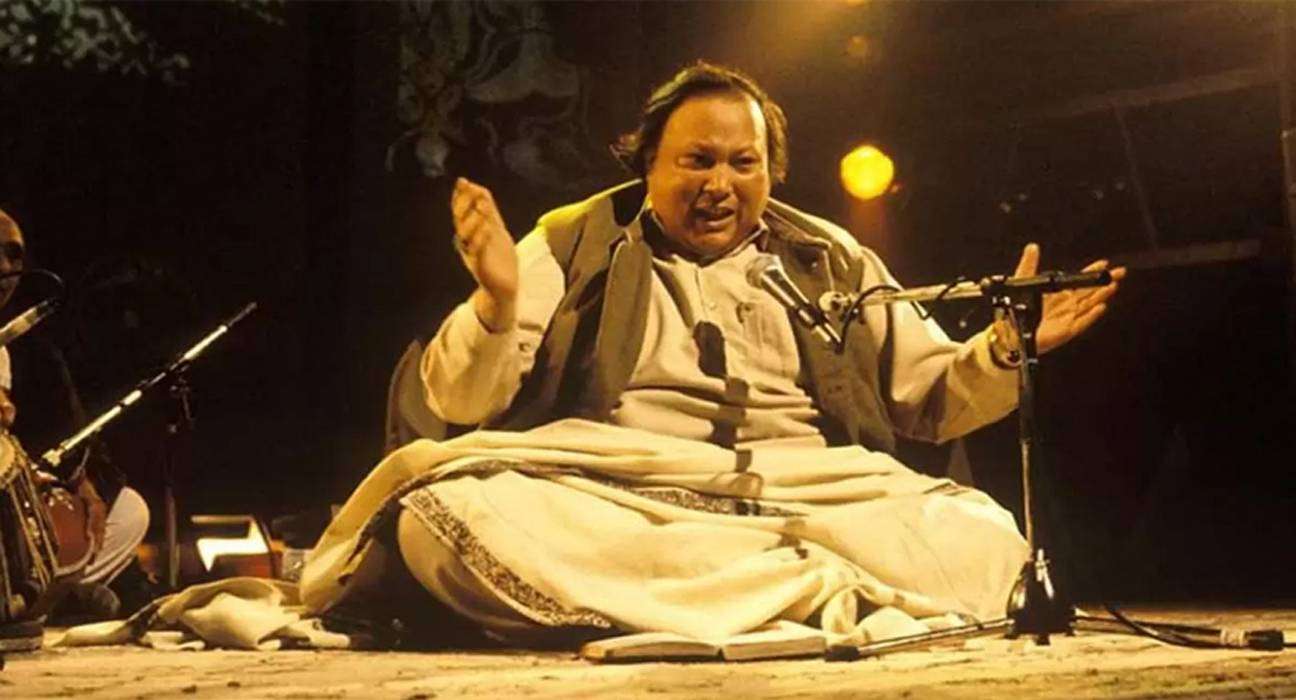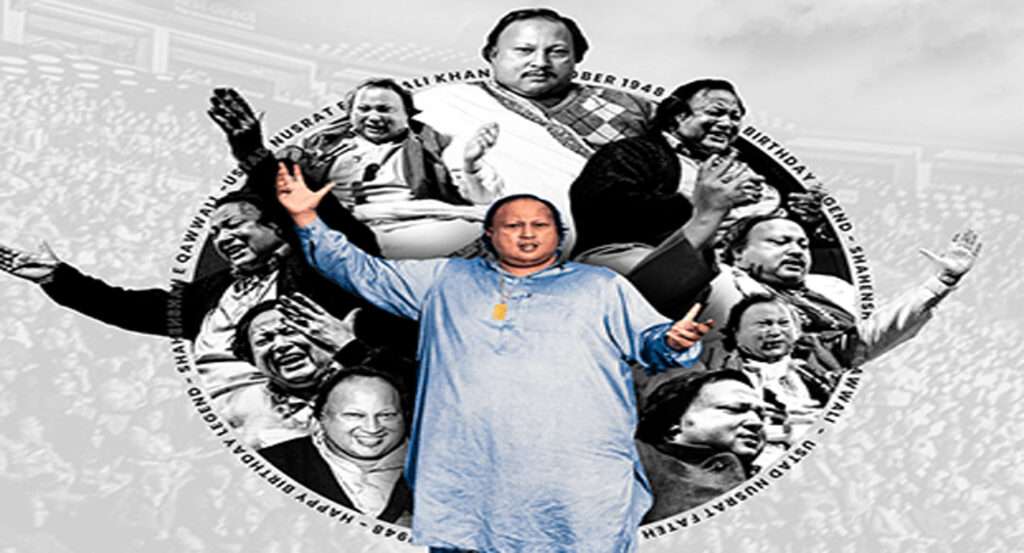The Timeless Legacy of Nusrat Fateh Ali Khan: A Maestro of Qawwali

Introduction:
Nusrat Fateh Ali Khan, a name synonymous with mastery in Qawwali, stands as a towering figure in the realm of Sufi music. Born on October 13, 1948, in Faisalabad, Pakistan, Nusrat Fateh Ali Khan’s artistic journey has left an indelible mark on the world of music. Renowned for his mesmerizing vocal abilities and a soul-stirring connection to spirituality, Khan’s legacy continues to resonate globally, transcending cultural and geographical boundaries.
Early Life and Musical Journey:
Growing up in a family with a rich musical heritage, Nusrat Fateh Ali Khan inherited his musical prowess from his father, Ustad Fateh Ali Khan, and his family’s 600-year-old tradition of Qawwali. Embracing the musical legacy, young Nusrat began his formal training at the age of 16, quickly establishing himself as a prodigious talent. His deep connection to Sufi mysticism further fueled his passion, elevating his performances beyond mere musical expression.
Evolution of a Genre:
Nusrat Fateh Ali Khan played a pivotal role in revolutionizing Qawwali, infusing it with contemporary elements while preserving its spiritual essence. His innovative approach to the classical art form attracted a diverse audience, breathing new life into Sufi music. The fusion of traditional Qawwali with modern instruments and arrangements expanded the genre’s reach, captivating listeners worldwide.

Global Recognition:
Khan’s extraordinary vocal range and emotive performances garnered international acclaim. His collaborations with artists from various genres, including Peter Gabriel, Eddie Vedder, and Michael Brook, helped introduce Qawwali to a broader audience. The transcendent quality of his music resonated with listeners, transcending linguistic and cultural barriers.
Spirituality in Music:
At the heart of Nusrat Fateh Ali Khan’s artistry was a profound spiritual connection. His performances were not just musical expressions; they were spiritual journeys that transported audiences to a higher plane of consciousness. The sincerity and devotion embedded in his voice made each performance a transcendent experience, touching the souls of those who listened.
Enduring Influence:
Even after his untimely demise on August 16, 1997, Nusrat Fateh Ali Khan’s influence continues to reverberate. His nephew Rahat Fateh Ali Khan, also a renowned Qawwali artist, has carried forward the family legacy. Additionally, countless musicians across genres acknowledge Khan’s impact on their work, cementing his status as a true musical icon.
Conclusion:
Nusrat Fateh Ali Khan’s contributions to Qawwali and Sufi music remain unparalleled. His legacy is not just a testament to his extraordinary vocal abilities but also to his ability to bridge cultural divides through the universal language of music. As we reflect on his life and artistry, we are reminded that the power of music, when infused with sincerity and spirituality, has the capacity to transcend time and touch the hearts of people across the globe. Nusrat Fateh Ali Khan’s legacy is an eternal melody that continues to resonate, inspiring generations to come.











